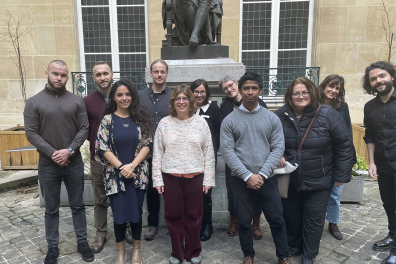Launch of the Lesser-Used Languages Classroom (LULaC) Project

Led by Inalco University, in collaboration with the University of Cologne, the University of Florence and Taras Shevchenko National University of Kyiv, the Lesser-Used Languages Classroom (LULaC) project will establish a digital platform dedicated to the teaching and learning of lesser-used languages. By October 2027, the four partners will develop teaching materials based on the Common European Framework of Reference for Languages (CEFR) for pilot languages, among which is Ukrainian. The project will then launch two digital language introductory courses on the EUniWell Learning Management System.
The aim of LULaC is to promote linguistic diversity, by addressing the lack of tools and resources to teach and learn lesser-used languages, in comparison to major languages predominant in language education. Using the CEFR, already widely used for major languages, allows to standardise teaching and assessment methods, while developing digital language education allows to reach wider audiences and respond to the scarcity of teachers and resources.
The four partner universities met at Inalco university, in Paris, on 21 and 22 November 2024 to officially launch the project and plan the activities for the three next years.
Further information
The LULaC project aligns with the mission of EUniWell Arena 4: Culture, Multilingualism and Well-Being, which emphasises the importance of linguistic diversity and multilingualism for fostering social cohesion and equality. This newly emerged project of four EUniWell universities highlights the shared commitment to promoting the teaching and learning of lesser-used languages as a means of enhancing intercultural dialogue and access to education.
Contact
For more information on the project, please reach out to Click here to show mail address.
Funded by the European Union. The views and opinions expressed are those of the author(s) and do not necessarily reflect those of the European Union or the French Erasmus+ National Agency. Neither the European Union nor the granting authority can be held responsible for them.